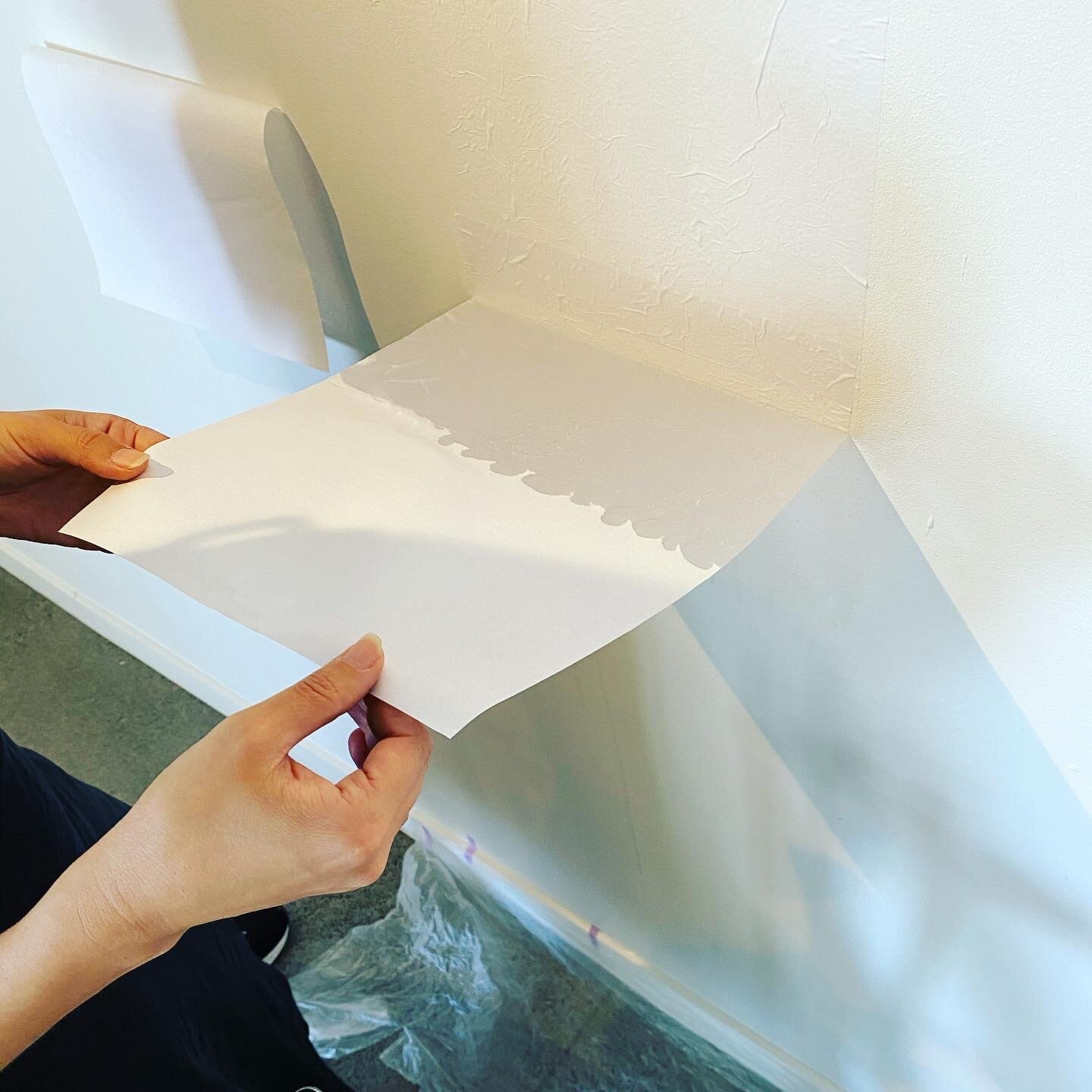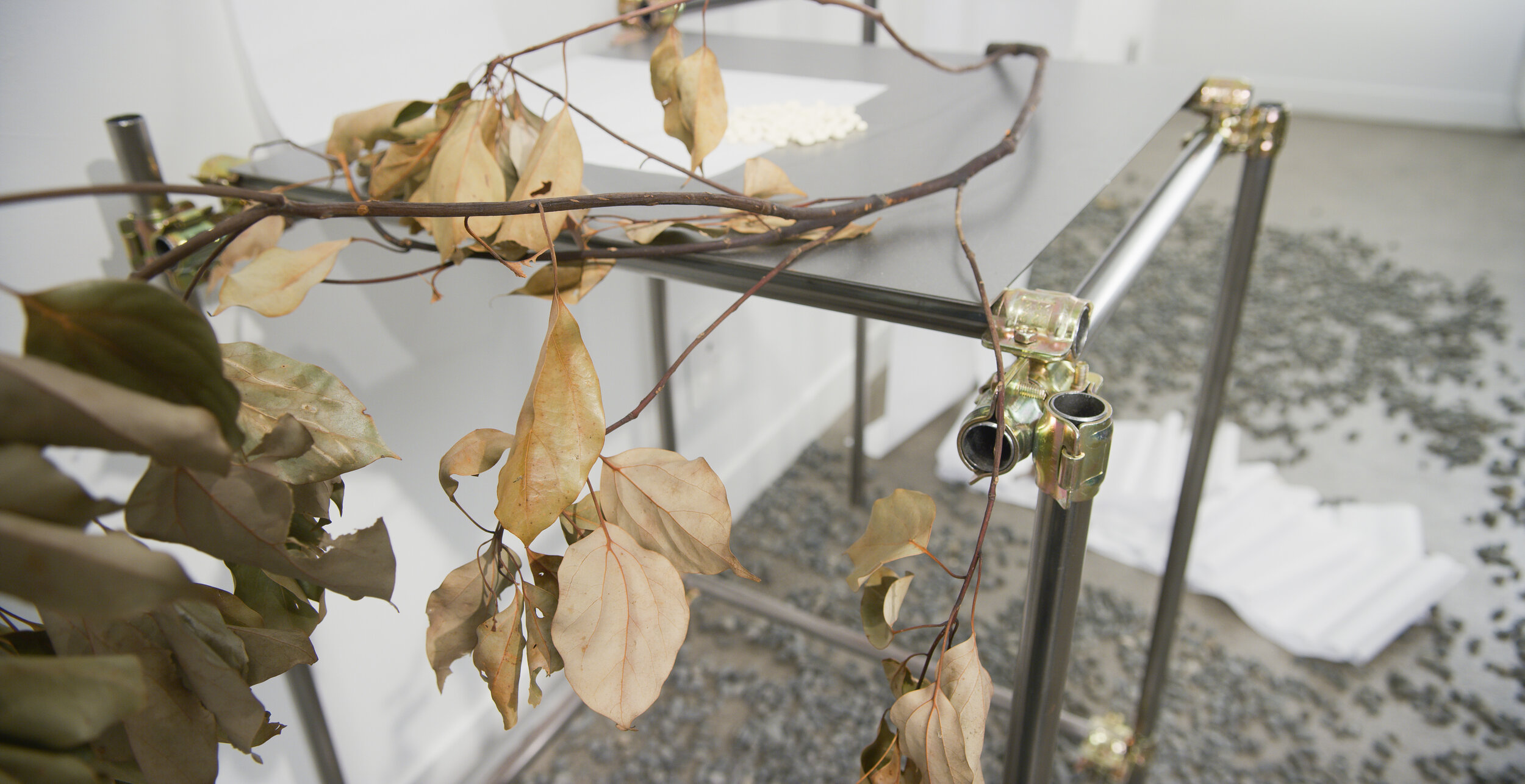Yukari Kaihori
“When I was invited to show at mothermother, I thought it was a great opportunity to make some personal work concerning the female side of my family. I found the scaffolding steel of the mothermother gallery space on the ceiling interesting and wanted to work with that unique feature.
The new work ‘庭, niwa, garden’ was developed from the writing and art work I have contributed for the upcoming femisphere issue 4. Niwa shows a temporal and fragile mystic garden (scaffolding structure), with scrolling letters (stories) handing down from one generation to the next. According to Shintoism, a Japanese indigenous religion that worships nature, water is sacred as is the mountain that brings us water. small round pebbles, called tama (round things, spirit) are the symbol of repetition of life. they are often found at the path to the shrines.
The COVID-19 lockdown in New Zealand made it a necessity for me to work within a limited physical space and utilize materials found around the house. The notion of emergency circumstance led me to think about my late nana, Toshiko, and the attempt to understand and relate to her.
ToshikoKkimura was the youngest sibling. Her mother died during childbirth so she was adopted to a wealthy childless couple. They adopted her with one expectation, that the girl would grow up and take a groom through an arranged marriage one day. She left a small fisherman’s island Nu Shima, never to return. In regards to the land, Japanese indigenous religion, Shintoism, has a similar creator mythology to Maori. Kojiki, the oldest Japanese literature from the 8th century writes that Nushima is one of the first islands out of some six thousand Japanese islands - mother god, Izamani, and father god, Izanaki, created by the drop of the seawater.
She paid attention to the details in everyday form more than anyone; such as her ritual in Japanese tea making, how she folded every piece of used wrapping paper, handkerchief or plastic wrap going to the bin into a perfectly folded square. There is a perfection in her mannerisms; precise, calm and articulate, and performed without ever expecting anyone to witness of appreciate it.
In my first years of life, she looked after me every day in the garden, pointing out the subtle colour change in plants, the smell of different flowers in different seasons, the way the sun looks different daily and the way the moon looks different depending on how you are feeling. She found pleasures in small discoveries in our ordinary surroundings.”
Yukari Kaihori x mothermother 2020










Yukari Kaihori is a visual artist based in Tāmaki Makaurau. she has exhibited her work in both public and private spaces including We painted the wall with cracks (2020) play_station.Tthis Land is all we know (2019) Hastings City Art Gallery, Infinite planes ( 2019) Parlour project, Blue fancy ( 2019) Milford Galleries
She was the recipient of Pollock Krasner Foundation Grant (NY) Award in 2015. She was a fellow at the Vermont Studio Center, Virginia Center for the creative arts, Oberpfälzer Künstlerhaus, and currently in the MFA program at Elam, University of Auckland. Yukari works with painting, sculpture, installation and moving image. She is interested in the notion of “here and now”, which is the tenet of zen by working with given sites and immediate environments- which place ground us to a specific time and space that is nowhere else.
